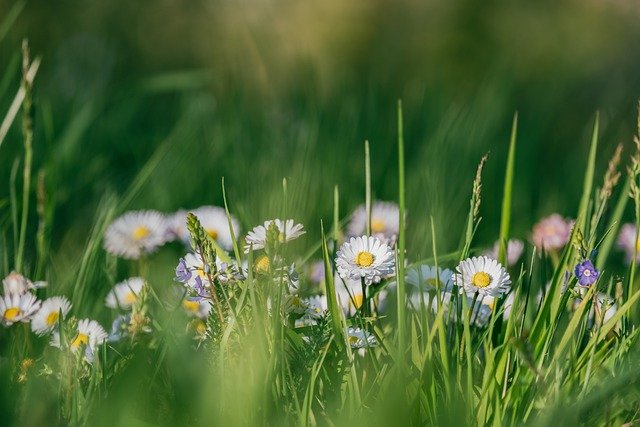
The line between 'good plants' and 'weeds' is often very blurred. Some plants may be considered weeds in some gardens, and welcome guests in others; it all depends on whose garden you're looking at. Of course, while there are no hard and fast rules, there are plants that are (more or less) universally considered 'pests' or 'problematic' - take Japanese knotweed for example. These tend to be the weeds we look out for when we do a survey of your garden! If you'd like to find out what makes a plant a weed, just keep reading.
What makes a plant a weed?
So, what is the definition of a weed? Well, while we can't provide you with a definitive list of 'weeds', we can tell you some of the common characteristics that make some plant species more of a nuisance than others. A lot of weeds share the following characteristics:
- They grow in unusual or unexpected places (for example between your patio slabs or in your gutters)
- They spread quickly and aggressively
- They have a tendency to survive even when growing conditions are poor
- They can survive in the ground for a very long time before appearing
Weeds in your garden may fit some, all, or none of these criteria. A lot of the time, the difference between a welcome 'plant' and a 'weed' is subjective - do you want that plant to exist in your garden? If the answer is no, then it's more than likely that you're looking at a weed. If the answer is yes, and the plant isn't causing you any harm, then feel free to let it flourish.
Plants that most people consider as weeds
As we mentioned, there are some plants that 99% of people label as weeds. Most of them are plants you've probably seen in your garden, local parks and public areas time and time again. These include dandelions, dock leaves, daisies, nettles and bindweed (the list goes on)... Most of these plants are completely harmless, however, if you find that they're getting in the way of your desirable plants or your perfect lawn, then you should consider a professional weed treatment program.
Can weeds become a problem?
You might be thinking about leaving your garden to grow wild and free, and while this laidback approach might seem harmless, it can cause a few unexpected problems. Sadly, not all weeds are merely an inconvenience. There's one weed, in particular, that can cause a whole host of problems if it's left to grow wild near your property. From physical damage to lawsuits - Japanese knotweed is the furthest thing from a harmless plant & can really turn your world upside down! That's why it's important that you monitor and check the plants in your garden regularly, even if you have no intention of pruning them.
Caught and treated in the early stages, Japanese knotweed shouldn't become a significant problem. However, this is a very fast-growing plant that will quickly envelop your garden with its bamboo-like shoots! It will force its way through your home and garden and it will do it quickly, so it's important you act fast and don't treat this weed like a typical plant.
Japanese Knotweed Removal
Hopefully, this will help you establish the difference between a plant and a weed. As you can see, some plants are more of a nuisance than others, and some are downright dangerous! The Taylor Total Weed Control team can help you identify and eradicate a whole host of weeds. Simply get in touch to find out more.
